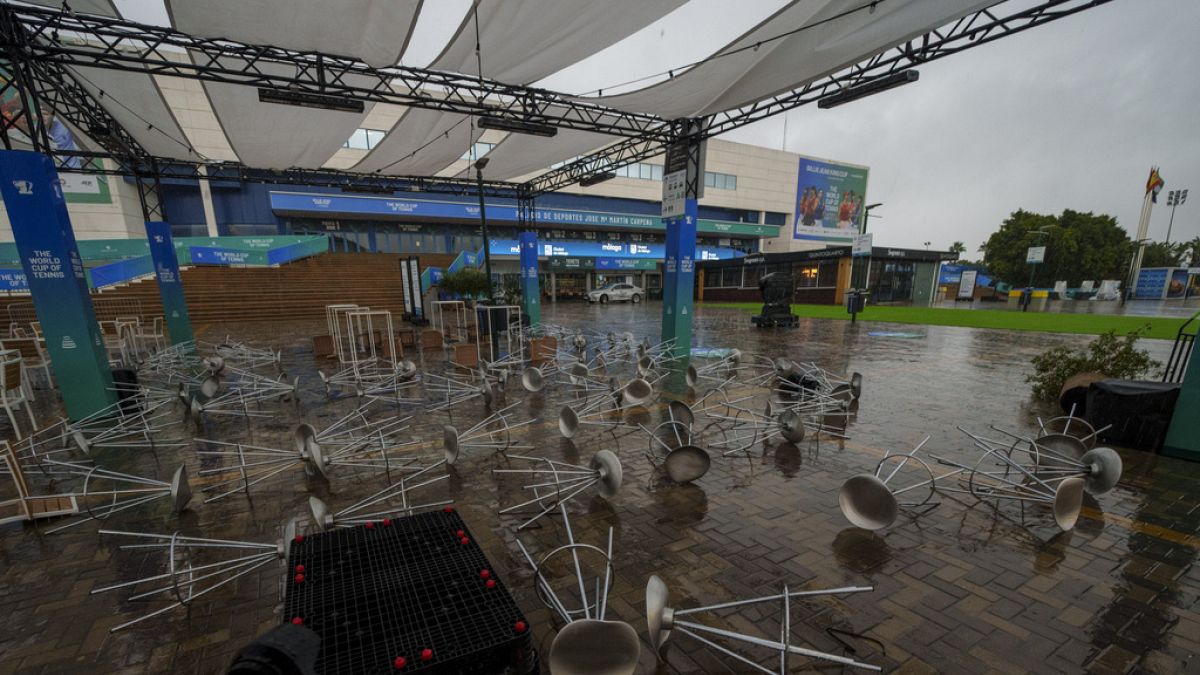Flooding in garages, commercial premises and ground floor dwellings, overflowing streams and rivers, roads cut off and large pools of water in the streets are the most notable consequences of the rainfall.
Storms in Spain caused school closures and train cancellations on Wednesday, two weeks after flash floods in Valencia and other parts of the country killed more than 220 people and destroyed thousands of homes.
In Spain’s southern Malaga province, streets were flooded while 3,000 people near the Guadalhorce River were moved from their homes as a preventative measure.
There were no reports of any deaths.
Spanish weather forecaster AEMET put Malaga on red alert, saying up to 70 mm of rain had accumulated in an hour.
Parts of Tarragona province in the east also faced heavy rain and remained under red alert.
The forecast in Malaga delayed the start of the Billie Jean King Cup tennis finals between pain and Poland, which was set for Wednesday.
The storm system affecting Spain is caused by warm air that collides with stagnant cold air and forms powerful rain clouds.
Experts say that drought and flood cycles are increasing with climate change.
In response to the devastating floods in Spain, the European Parliament on Wednesday debated measures to strengthen the EU’s resilience to extreme weather events and provide support to those impacted by the disaster.
“We must ensure that we are prepared when the next disaster strikes, because we are already living in an age of crisis,” said European Commissioner for Crisis Management Janez Lenarcic, adding that “Europe is the fastest warming continent in the world.”
The debate focused on enhancing the EU’s crisis response, particularly in regions increasingly vulnerable to climate-driven events. It hoped to underscore the EU’s commitment to improving climate adaptation efforts across Member States.

